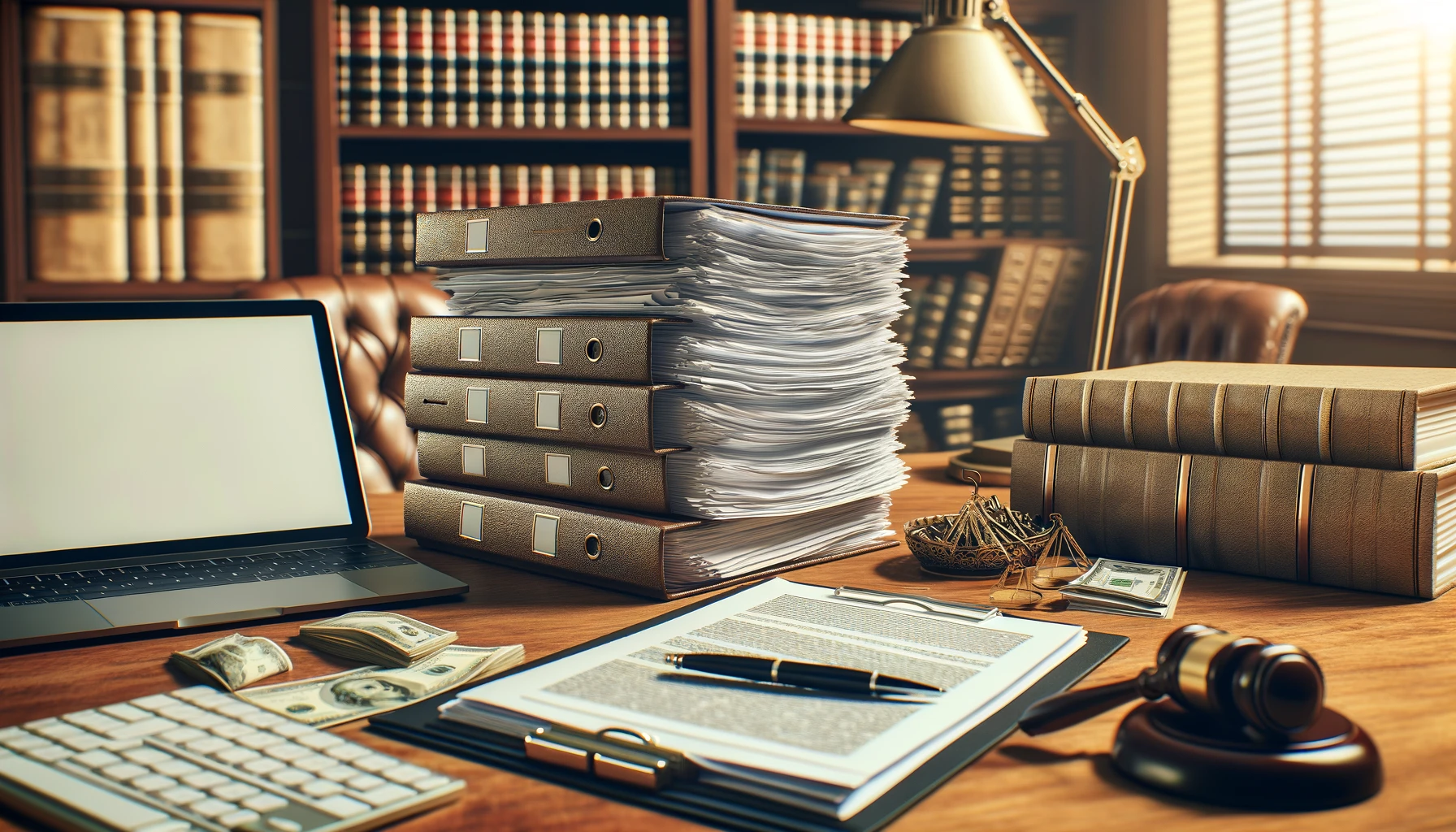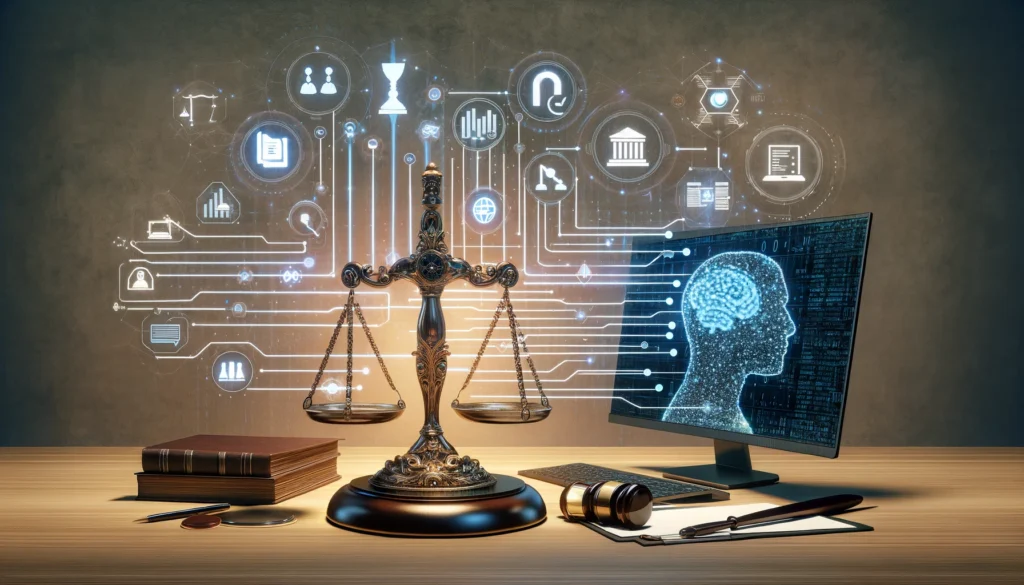
The Corporate Litigation Document Deluge
Corporate litigation is notorious for its avalanche of documents. Contracts, emails, financial statements, internal memos, and a myriad of other records can quickly pile up, creating a daunting task for legal teams. Sifting through this deluge of information to identify key evidence, understand complex issues, and build a winning strategy is often a time-consuming and laborious process.
In the face of such immense document volumes, it’s easy for crucial details to slip through the cracks. Missed deadlines, overlooked inconsistencies, and buried smoking guns can all have serious consequences for the outcome of a case. The pressure to efficiently manage and analyze these documents can be overwhelming.
Fortunately, the rise of artificial intelligence (AI) offers a potential solution. Language models like ChatGPT, with their ability to rapidly process and summarize vast amounts of text, are emerging as powerful tools for navigating the complexities of corporate litigation documents. Let’s delve into how ChatGPT can revolutionize your approach to document review and analysis.
ChatGPT: Your Legal Research and Review Partner
ChatGPT, with its language processing prowess, can be a powerful ally for legal teams facing the document deluge of corporate litigation. It goes beyond simple text generation and offers a range of capabilities tailored to the legal field:
- Summarization: ChatGPT can quickly condense lengthy contracts, legal briefs, depositions, and other documents into concise summaries, highlighting key points, clauses, and potential risks. This can save hours of manual review and help you quickly grasp the essence of complex legal documents.
- Information Extraction: Need to find specific clauses, dates, names, or financial figures buried in a mountain of documents? ChatGPT can extract this information with ease, saving you the tedious task of manually searching through files.
- Comparison and Analysis: ChatGPT can compare multiple documents, such as different versions of a contract or witness statements, to identify discrepancies, inconsistencies, or changes over time. This can be crucial in uncovering hidden details or potential areas of dispute.
- Legal Research: While not a replacement for a legal research database, ChatGPT can quickly access and summarize relevant case law, statutes, and regulations, providing you with a starting point for your own legal research and analysis.
Important Note:It's crucial to remember that while ChatGPT is a valuable tool, it's not a substitute for legal expertise. Always verify the accuracy and relevance of the information it provides, and seek the guidance of qualified legal professionals for complex legal issues.
The true power of ChatGPT lies in crafting effective prompts that guide its analysis and output. Let’s explore some prompt strategies that can revolutionize your approach to corporate litigation documents.
Also read:
Prompt Engineering for Corporate Litigation Success
Crafting effective prompts is the art of communicating with ChatGPT to elicit the most relevant and useful responses for your corporate litigation needs. Here are some powerful prompt strategies and examples:
Contract Analysis
- Prompt: “Analyze this contract [insert contract or relevant sections] and summarize the key terms and conditions related to [specific issue, e.g., termination clause, non-compete agreement, intellectual property ownership]. Highlight any potential ambiguities or areas of risk.”
- Purpose: Quickly grasp the essential elements of complex contracts, identify potential legal vulnerabilities, and inform negotiation or litigation strategies.
Document Review
- Prompt: “Review these emails [insert emails or relevant threads] and flag any discussions, agreements, or decisions related to [specific topic, e.g., product development, pricing strategies, potential misconduct]. Extract relevant quotes and summarize key points.”
- Purpose: Efficiently sift through large volumes of emails to pinpoint relevant information, saving time and ensuring no crucial details are overlooked.
Risk Assessment
- Prompt: “Based on this financial report [insert report or relevant sections], identify any potential red flags or irregularities that could expose the company to legal liability, such as accounting errors, misrepresentations, or non-compliance with regulations.”
- Purpose: Proactively assess potential legal risks, enabling you to take preemptive action, gather additional evidence, or develop mitigation strategies.
Deposition Preparation
- Prompt: “Analyze this witness’s previous statements [insert statements or deposition transcripts] and generate a list of potential questions for their deposition, focusing on areas of inconsistency, vagueness, or potential bias.”
- Purpose: Streamline the deposition preparation process, ensuring you ask targeted questions that could lead to valuable admissions or highlight inconsistencies in the witness’s testimony.
Tips for Effective Prompting
- Be Specific: Clearly define the scope of your request, the desired output format (summary, list, analysis), and any specific aspects you want ChatGPT to focus on.
- Provide Context: If applicable, provide relevant background information about the case, the parties involved, or the specific legal issues at hand.
- Iterate: Don’t be afraid to refine your prompts based on ChatGPT’s initial responses. Ask follow-up questions or provide additional details to guide its output.
ChatGPT can go beyond document review and analysis. Let’s explore how it can assist in developing litigation strategies and preparing compelling legal arguments.
Also read:
Beyond Document Review: ChatGPT for Litigation Strategy
While document review is a critical component of corporate litigation, ChatGPT’s potential extends far beyond simple analysis. Its ability to generate creative text and understand legal concepts makes it a valuable asset in developing litigation strategy and preparing for key events like depositions and court filings.
Here are some ways ChatGPT can be leveraged:
- Brainstorming Legal Arguments: Present ChatGPT with a summary of the case and ask it to generate potential legal arguments or defenses. This can spark new ideas and help you explore different angles of the case.
- Identifying Weak Points: Ask ChatGPT to analyze the opposing party’s arguments and identify potential weaknesses, logical flaws, or factual inconsistencies. This can help you anticipate their strategy and prepare effective counterarguments.
- Drafting Legal Documents: ChatGPT can help draft initial versions of legal briefs, motions, or other court filings. While you’ll still need to review and refine the language, this can save significant time and ensure that you haven’t overlooked any key points.
- Deposition Preparation: Beyond generating questions, ChatGPT can help you anticipate potential answers and craft follow-up questions to probe for further details or inconsistencies.
Remember, ChatGPT is a tool, not a strategist. Use its insights as a starting point for your own legal analysis and decision-making. The human element of strategic thinking, legal expertise, and courtroom experience remains essential for successful litigation.
While ChatGPT offers tremendous potential for enhancing litigation strategy, it’s important to consider the ethical implications and ensure that it’s used responsibly and in compliance with professional standards.
Also read:
Ethical Considerations and the Importance of Verification
As with any powerful tool, the use of ChatGPT in corporate litigation raises ethical considerations that legal professionals must carefully navigate:
- Confidentiality: Corporate litigation often involves highly sensitive information. Take precautions to protect client confidentiality by anonymizing data and ensuring that any information shared with ChatGPT is handled securely.
- Attorney Supervision: ChatGPT is not a lawyer and cannot provide legal advice. It is essential that attorneys supervise its use, critically evaluate its output, and ultimately take responsibility for all legal decisions and actions.
- Transparency: Be transparent with clients, opposing counsel, and the court about your use of AI tools. Disclose how ChatGPT was utilized and clarify that it served as a tool to assist with analysis, not to make legal determinations.
- Avoiding Bias: AI models can inadvertently perpetuate biases present in the data they are trained on. Be vigilant about reviewing ChatGPT’s output for any signs of bias and ensure that your legal strategies are based on sound judgment and ethical considerations.
The Future of AI in Corporate Litigation
AI tools like ChatGPT hold immense potential to transform the practice of law, making it more efficient, accessible, and equitable. By embracing these technologies responsibly and thoughtfully, legal professionals can harness their power while upholding the highest ethical standards and ensuring that justice is served.


